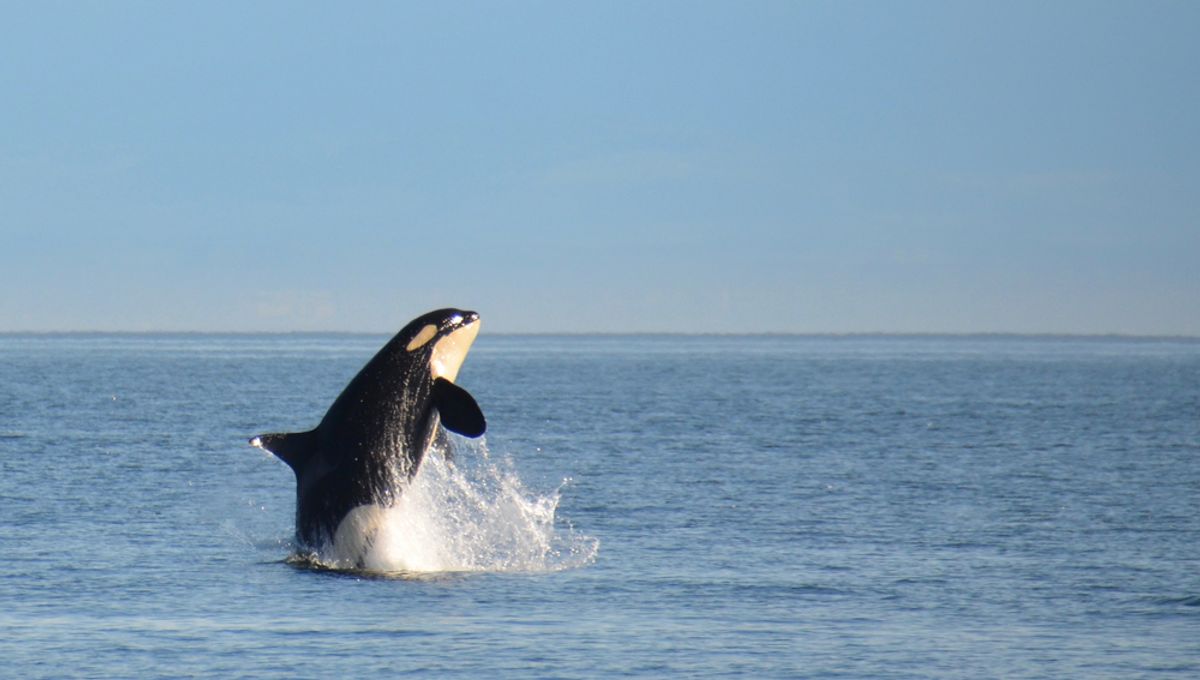
With only 75 individuals remaining in the wild, Southern Resident killer whales (SRKW) are among the most high-profile species currently facing the threat of extinction. Highlighting the urgency of the situation, a new study has revealed that this risk is accelerating, with the SRKW population declining at a rate of around one percent per year.
Occupying the waters off the coast of North America’s Pacific coast, spanning from California to Alaska, the endangered orca feeds almost exclusively on the chinook salmon with which it shares its habitat. However, historical overfishing of these salmon has drastically reduced the availability of prey, leading to a catastrophic drop-off in SRKW numbers.
“Our analyses reveal that the population shows lower recovery potential than previously estimated, due to reduced leverage of prey availability on SRKW demography,” write the study authors. Worryingly, this primary threat has been bolstered by other confounding factors, including a low number of female orcas being born in recent years as well as deaths caused by accidental boat strikes.
To make matters worse, the researchers explain that “Southern Resident killer whales are known to be among the most contaminated marine mammals in the world,” with dangerously high levels of the industrial chemical polychlorinated biphenyl (PCB) compromising the animals’ growth, immune function and sexual health. “Despite their phase-out under the terms of the international Stockholm Convention on Persistent Organic Pollutants (POPs), the persistence of PCBs in the marine environment and resistance to metabolic elimination means that it will take decades before this population is considered to be ‘safe’ from PCB and other legacy contaminant-related health effects,” write the authors.
A lack of viable males is also likely to increase the level of inbreeding, all of which means that the baseline population of one percent per year is expected to increase in the future. Protecting the species will therefore require “aggressive actions”, which the researchers say should be focused on boosting chinook salmon populations while simultaneously restoring the orcas’ habitat.
This will need to include efforts to reduce shipping noise in the region, as the unwelcome racket has been shown to significantly reduce the whales’ ability to forage. “It may be necessary to consider ocean noise budgets, caps, or limits that allow killer whales to hunt scarce prey efficiently,” explain the study authors.
Sadly, it looks like we’ve already left it too late to expect any major rebound in SRKW numbers, with no single action plan projected to achieve the recovery objective of 2.3 percent sustained growth over 28 years. However, the researchers do say that concerted conservation efforts might at least reverse the decline, and could potentially bring about a recovery rate of one percent per year.
Hope is therefore not lost, although the study authors warn that time is running out to save this iconic species. “Preventing extinction is still possible but will require greater sacrifices on regional ocean use, urban development, and land use practices, than would have been the case had threats been mitigated even a decade earlier,” they write.
The study has been published in the journal Communications Earth & Environment.
Source Link: Urgent Alert: Critically Endangered Killer Whales Face Rapid Decline